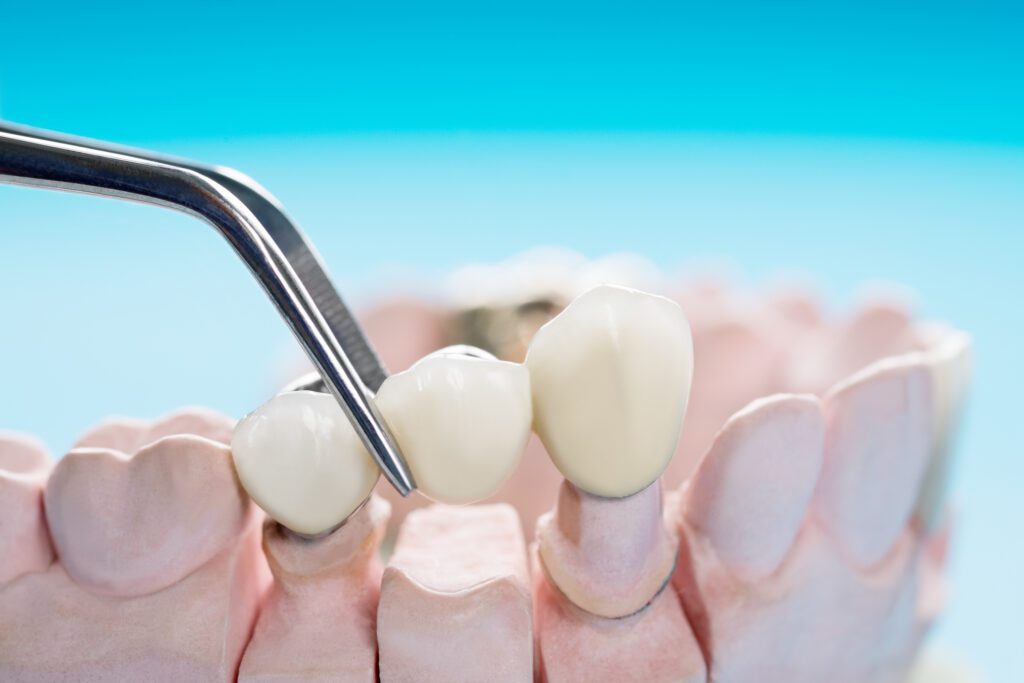Modern dentistry now views dental implants as the standard of care for replacing multiple teeth, particularly when they are in a row. Implants play a crucial role in preventing bone loss and preserving facial structure.
Former treatments, such as removable dentures, not only failed to address these concerns but also led to complications. Treatments that use multiple teeth implants in our South Concord and Lexington, MA offices restore the full function of the smile.


Dental Implants vs. Traditional Dental Bridges
A partial bridge is the most common solution for replacing multiple lost teeth; however, it is no longer considered the best treatment.
The structural components of a bridge inflict permanent damage on the remaining teeth, acting as anchors to support the bridge. Studies have shown that bridges often lead to additional tooth loss caused by wear and tear on what would otherwise have been healthy teeth.
Dental bridges allow the jaw bone to deteriorate because they do not stimulate the bone. In contrast, the roots of dental implants provide stimulation, protecting the jaw bone and supporting existing facial structure and shape.
Because the titanium is compatible with the body, it can integrate into the jaw bone for a stronger replacement, increasing the permanency and longevity of the implant.
Additionally, complications such as looseness or slipping are eliminated because the implant cannot be removed without surgery, allowing for normal eating and speaking.
Multiple Teeth Implants in Concord & Lexington, MA
Many factors contribute to the placement of implants in multiple teeth replacements. The first approach your doctor will consider is placing an implant at each lost tooth’s site. Such implants would be permanent replacements and act as your natural teeth.
Not all patients qualify for implants at all sites of tooth loss. If too much bone loss has occurred, bone grafting may be necessary to create sufficient bone mass to hold the dental implant.
Another option is to use implants to create an implant-supported bridge. Like traditional bridges, a prosthetic attaches to two abutment teeth; however, with dental implants, the anchor teeth are implants rather than remaining natural teeth. This reduces the risks of damage or loss of your remaining teeth.
During the procedure, we place two or more implants with a temporary replacement called a “flipper.” The flipper is suspended between the implants for the duration of the healing period, which takes 4-6 months.
Once the implants fuse with the jaw bone, we attach the permanent prosthetic between the implanted anchor teeth.
Restore Your Full Smile
To schedule a consultation or learn more about dental implants, please contact us at our Concord and Lexington offices today! Call our Lexington office at 781.384.5892 or our Concord office at 978.391.6081.
